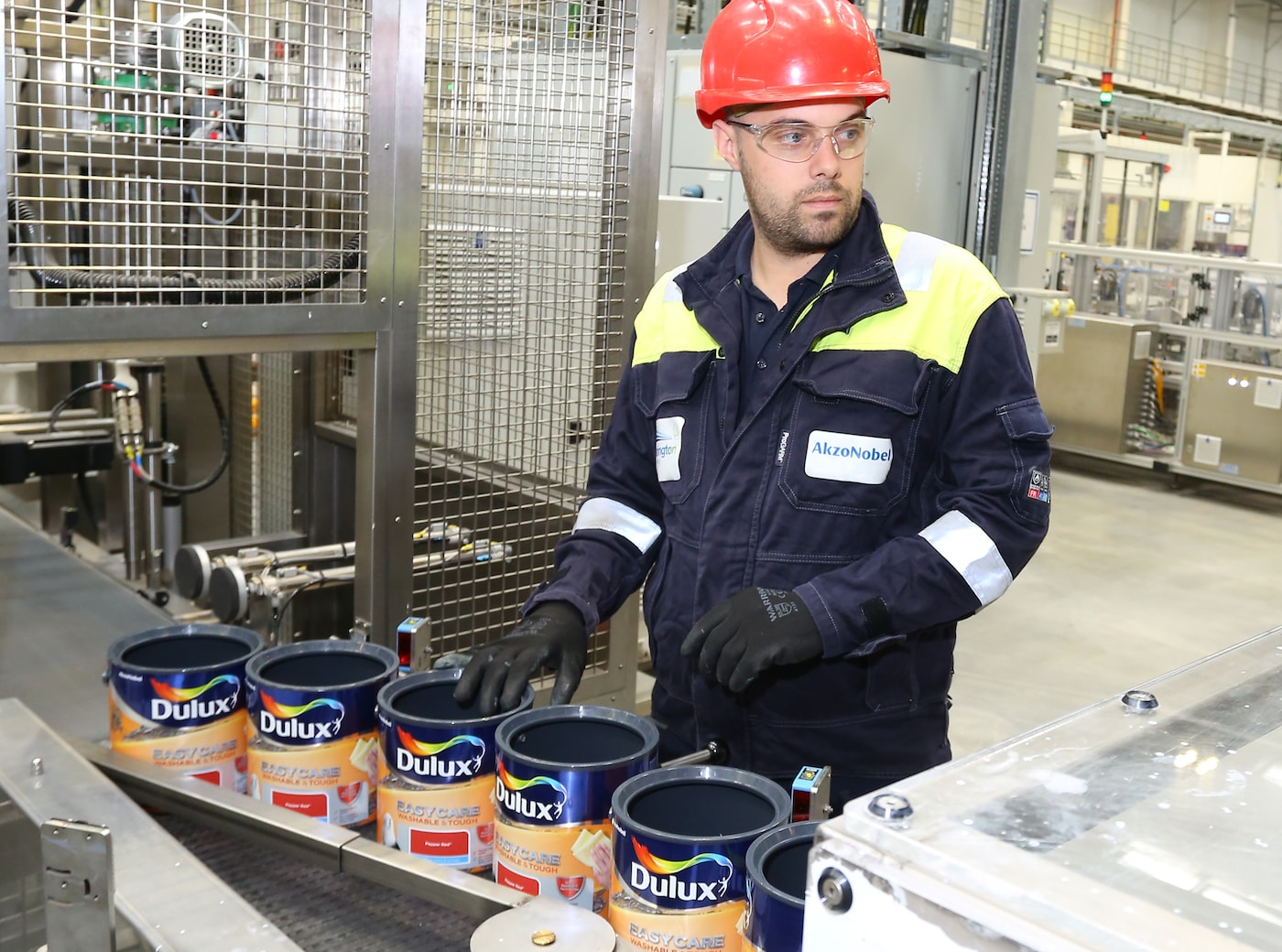
Annual General Meeting 2025
(AKZA; AKZOY)
AkzoNobel is purchasing significantly reduced carbon footprint raw materials from BASF for its decorative paints production in EMEA (Europe, Middle East and Africa), demonstrating the shared commitment of both companies to drive down Scope 3 emissions.
Signaling AkzoNobel’s intent to deliver more lower carbon products into the mainstream, the agreement involves the company using BASF’s biomass balanced (BMB) ingredients – which don’t require any new formulations or changes to existing paint manufacturing processes. The end result of this approach is an AkzoNobel paint with exactly the same quality and performance, but with a reduced carbon footprint of at least 5%.
BASF replaces the fossil-based feedstock in the ingredients it supplies to AkzoNobel with renewable resources such as bionaphtha and biomethane via a mass balance approach. This mass balance approach is certified by an independent third party. It means AkzoNobel can purchase BASF’s acrylic binder (one of the main ingredients in decorative paints) with a significantly reduced carbon footprint.
An AkzoNobel employee monitors Dulux Easycare paint production at the company's Ashington manufacturing site in the UK
“Integrating BASF’s BMB ingredients into our higher volume consumer products will help us achieve a significant overall impact in terms of carbon footprint reduction,” says Wijnand Bruinsma, AkzoNobel’s Director of Sustainability. “Our partnership means the carbon footprint of any paint we produce using the BMB approach will be cut by at least 5% to begin with, compared with the same formula produced using 100% fossil-based material.”
Dr. Jörg Niebergall, Senior Vice President, Dispersions Europe, at BASF adds: “We’re proud to support AkzoNobel accelerate its sustainability agenda. Through our broad portfolio of sustainable and low carbon products, we’re enabling the company to offer its customers products with a lower carbon footprint. We also provide data, tools and expertise, empowering AkzoNobel to make informed decisions. The collaboration demonstrates the strong commitment of both companies to a more sustainable future.”
AkzoNobel in the UK is already preparing to launch its upgraded Dulux Easycare range – which uses the reduced CO2 ingredients – during Q2 this year. It’s the first time the company has used certified mass balanced products (replacing fossil fuels with renewable raw materials) for an acrylic binder.
“We can’t drive the reduction of Scope 3 carbon emissions by ourselves, that’s why collaboration is so important,” adds Bruinsma. “Partnerships like this play a key role in making change happen quicker and teaming up with BASF will help us create a scalable approach to more sustainable solutions.”
AkzoNobel is working to achieve RedCert2 certification for all relevant production sites in Europe – a recognized mass balance standard for the chemical industry.
About AkzoNobel
Since 1792, we’ve been supplying the innovative paints and coatings that help to color people’s lives and protect what matters most. Our world class portfolio of brands – including Dulux, International, Sikkens and Interpon – is trusted by customers around the globe. We’re active in more than 150 countries and use our expertise to sustain and enhance everyday life. Because we believe every surface is an opportunity. It’s what you’d expect from a pioneering and long-established paints company that’s dedicated to providing more sustainable solutions and preserving the best of what we have today – while creating an even better tomorrow. Let’s paint the future together.
About BASF
At BASF, we create chemistry for a sustainable future. Our ambition: We want to be the preferred chemical company to enable our customers’ green transformation. We combine economic success with environmental protection and social responsibility. Around 112,000 employees in the BASF Group contribute to the success of our customers in nearly all sectors and almost every country in the world. Our portfolio comprises, as core businesses, the segments Chemicals, Materials, Industrial Solutions, and Nutrition & Care; our standalone businesses are bundled in the segments Surface Technologies and Agricultural Solutions. BASF generated sales of €65.3 billion in 2024. BASF shares are traded on the stock exchange in Frankfurt (BAS) and as American Depositary Receipts (BASFY) in the United States. Further information at www.basf.com.
Read more about BASF's biomass balance approach.
